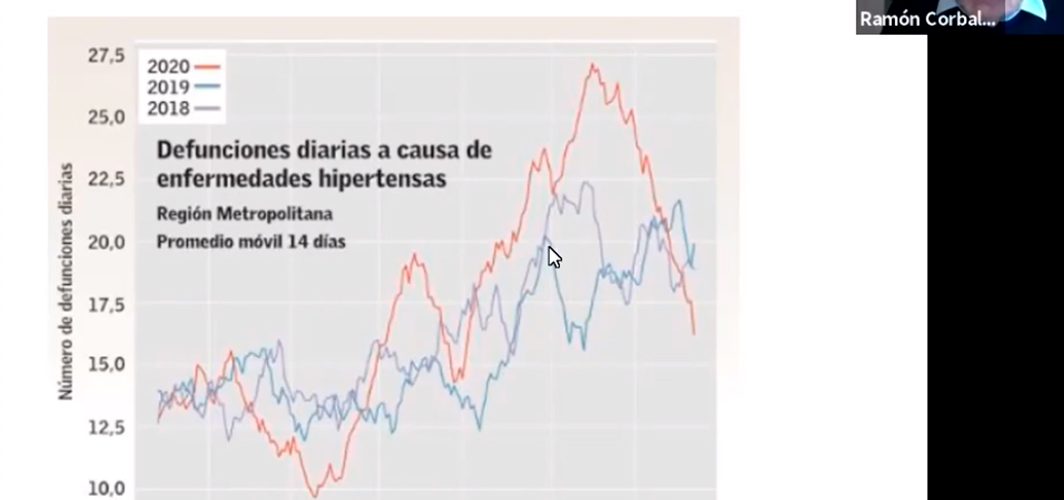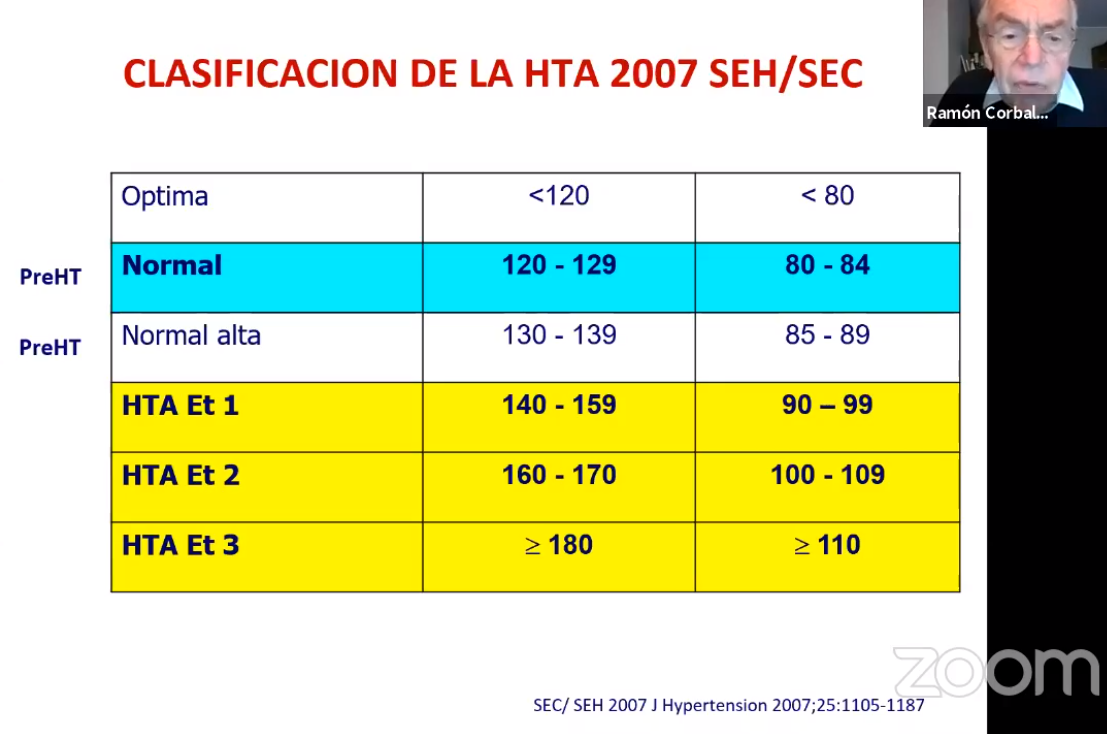"The more risk factors a patient has, more are the chances of complications or death, high blood pressure"

Throughout the month of August, the ACCDIS Advanced Chronic Disease Center, celebrates the month of the heart, to this end they have prepared a number of activities, among them their respective seminars focused on cardiovascular disease.
According to the World Health Organization, cardiovascular disease is the leading cause of death worldwide and predict that by 2030, almost 23,6 million people will die from such a disease, mainly from heart disease and stroke. Reality from which Chile does not escape, according to the latest National Health Survey, it is also the leading cause of death in the country, where 25% of the population is at high risk of developing some of these diseases: high blood pressure, high cholesterol and type 2 diabetes mellitus.
In this line, last Friday we talked to Dr.. Ramón Corbalán of the Pontifical Catholic University of Chile on how to live with high blood pressure: consequences and prevention. To kick-start, the expert highlighted a recent newspaper article on the increase in deaths from hypertensive pathologies, this is linked to the low control of cardiovascular disease, proceeds from the pandemic. "Recently we had to make many treatment adjustments to be able to normalize the figures that were usually stable, that is, we noticed that a person who regularly had a blood pressure at 130-80 went to 180- 100"
According to the doctor's hypothesis, noted that this is due to the stress generated by quarantines, especially in the older population "psychological stress can greatly influence blood pressure control".
Regarding the control and treatment of high blood pressure, the doctor indicated that although Chile has boom programs for good surveillance of these diseases, only 55% of the population is treated correctly and 20% achieve good pressure control. "Many people believe that once hypertension is detected and taking only one or two pills for a limited time, it's going to do enough... and then have abandoned treatment; which is reflected in poor control and increased risk of complications later".
What is the ideal blood pressure?
Then, shown a guide to the approximate blood pressure criteria, stressing that age plays a key role in this measurement, however the ideal blood pressure is 130-80, said Dr. Corbalán
 On the other hand, the doctor also explained the seven risk factors associated with hypertension, which may influence the prognosis of this pathology, for example: higher prevalence of hypertension is associated in men over 55 and in women over 65 years of age; people with potential damage to white organs, subjects with smoking persistence; elevated cholesterol and/or triglycerides, altered glycemia, obesity and family history, "it is important to understand that the more risk factors a patient has, more are the chances of complications or death". And with regard to the consequences, Dr. Corbalán commented "High blood pressure can cause cardiovascular accidents, Dementia, chances of a heart attack, cardiac arrhythmia, heart failure, sudden death and kidney damage".
On the other hand, the doctor also explained the seven risk factors associated with hypertension, which may influence the prognosis of this pathology, for example: higher prevalence of hypertension is associated in men over 55 and in women over 65 years of age; people with potential damage to white organs, subjects with smoking persistence; elevated cholesterol and/or triglycerides, altered glycemia, obesity and family history, "it is important to understand that the more risk factors a patient has, more are the chances of complications or death". And with regard to the consequences, Dr. Corbalán commented "High blood pressure can cause cardiovascular accidents, Dementia, chances of a heart attack, cardiac arrhythmia, heart failure, sudden death and kidney damage".
We invite you to the seminar of Dr.. Ramon Corbalán in our channel YouTube.
